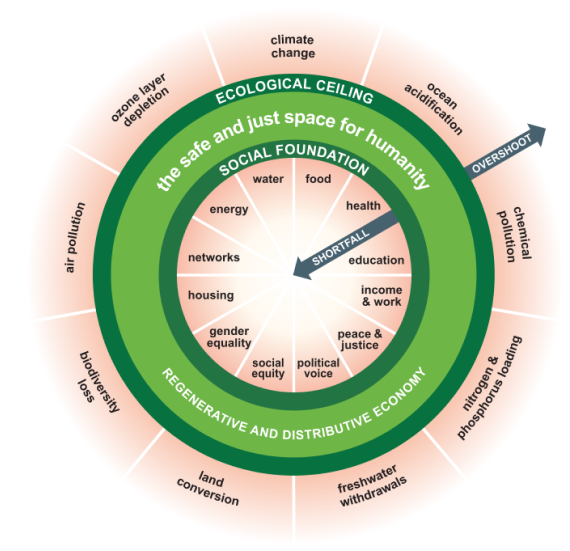Jet Zero - It's plane simple...
As a follow up to a modern day “3.6 Röntgen”, this blog post explores UK Jet Zero strategy1.
Take Off
On the same day that the UK experienced its first ever 40°C heatwave, a government press release announced: “2019 set to be remembered as the peak year for aviation emissions”. Reading this headline, you would be forgiven then for thinking that 2019 is set to be remembered as the peak year for aviation emissions…
In fact, the report recommends an aviation sector expansion that would increase UK passenger numbers by 70%, and cause aviation emissions to rise from 38MtCO2e (2019) to 52MtCO2e (2050), with a reliance on untested technologies to reduce the 2050 emissions back to 1990s levels, around 19MtCO2e.
The truth is, that aviation emissions in the UK will continue to increase for many years to come, because like governments around the world in pursuit of growing GDP, the UK is committing to airport expansion first, with climate targets only an afterthought.
CarbonBrief adapted a figure from the report, breaking down future aviation emissions projections:
The “residual emissions” (red) are projected to slightly decrease by 2030, and eventually reduce to early 1990s levels by 2050, ie. not even halving from current total emissions. By counting only these residual emissions, one is able to make the claim of a fall in emissions, albeit far from reaching zero.
Policy Motivations
In the 83 page strategy document, there is not one mention of climate emergency or crisis. No reference to danger or collapse. Not once is justice, equality or Global South discussed (despite 80% of the world currently not flying2).
Contrast this with 29 occurrences of growth, 22 times we are told of a benefit and 31 mentions of economy.
Why is policy driven by growing GDP? To meet the challenges we face, a regenerative economy is needed that prioritises meeting social needs within planetary bounds3. We need a just transition to a zero carbon democratic society4.

If the 21st century goal is to meet the needs of all people within the means of the living planet - in other words, get into the Doughnut - then how can humanity get there? Not with last century's economic thinking. Source: Doughnut Economics Action Lab
Misdirection
“Net zero” aviation is to be delivered by 2050, through a combination of efficiency improvements, and Greenhouse gas removal:
Efficiency
The UK’s own Climate Change Committee (CCC) diverges from the jet zero strategy, instead highlighting that aviation emissions should be cut with a reduction in demand5.
The jet zero strategy relies on a “breakthrough in sustainable aviation fuels” and a “breakthrough on zero-emission aircraft”. Yet the CCC describe these as “major risks” to reducing emissions.
Removal
Greenhouse gas removal (GGR) is mentioned a whopping 58 times! However, the only disclosure on how this would be achieved is: "[the] Government can put in place a framework that will encourage investment and use of GGR technology in due course." The plan is to commit to flight emissions now, and worry about their removal later!
Carbon capture schemes previously explored by the department for Business, Energy and Industrial Strategy are now being described as “not economically viable”, based on “unproven technology” and with a “very high cost”6. The reality is that it is much cheaper to avoid releasing emissions in the first place, than it is to try and drag CO2 back out of the atmosphere.
To put into perspective why CO2 capture is not economically viable: A UK £26 million award to accelerate carbon capture aims to capture as much as 40,000 tonnes CO2e per year7. If successful, that would be enough to offset flights of three most frequent flyer celebs8!
A Distraction
Both the claimed efficiency improvements, and unproven carbon capture methods are unlikely to succeed. Yet, until we stop releasing more greenhouse gas emissions than can be removed, Earth will continue to experience more impacts from climate change and we will edge closer towards dangerous tipping points. The most effective way to reduce emissions is to not emit them in the first place (ie. by flying less or not all), and the UK Jet Zero strategy document serves as a distraction from this.

The Conjurer, Hieronymus Bosch (circa 1502). The painting depicts a conjurer distracting onlookers, whilst a pickpocket is working away.
Landing
There is a huge contradiction in nationally determined contributions to reduce emissions. This is probably most visible in the aviation sector. Jet zero is banking on high risk efficiency improvements, and unproven or undisclosed technologies, distracting us from necessary reductions in flights.
The true cost of flying is huge, and something the aviation sector is keen to hide. Governments remain happy to turn a blind eye to the issue - hands tied in pursuit of infinite GDP growth.
Aviation policy must tackle head on the sources of rising emissions: place a ban on private jets, penalise frequent fliers, and encourage a broader culture shift towards slow travel). The pandemic has shown us that hybrid/virtual meetings can bring a host of benefits whilst reducing costs and emissions. Taking more holidays closer to home can be an exciting opportunity to learn more about our surrounding geography, history, and culture. A future is possible where we take fewer flights. With the damage already caused by climate change, and the potential collapse of society unless we act, is that really so much to ask?
If international climate policy is to claim any sense of justice and equity, it must recognise our broken economic systems and put forward promises for people and planet over private profit, and aviation policy must square up to this.
https://www.gov.uk/government/publications/jet-zero-strategy-delivering-net-zero-aviation-by-2050 ↩︎
https://www.theccc.org.uk/wp-content/uploads/2020/12/Sector-summary-Aviation.pdf ↩︎
https://bylinetimes.com/2022/01/27/carbon-captured-the-fossil-fuel-industry-and-the-uk-governments-net-zero-advisory-panel ↩︎
https://www.gov.uk/government/news/uks-largest-carbon-capture-project-to-prevent-equivalent-of-22000-cars-emissions-from-polluting-the-atmosphere-from-2021 ↩︎
https://www.rollingstone.com/music/music-news/kylies-17-minute-flight-has-nothing-on-the-170-trips-taylor-swifts-private-jets-took-this-year-1390083 ↩︎

